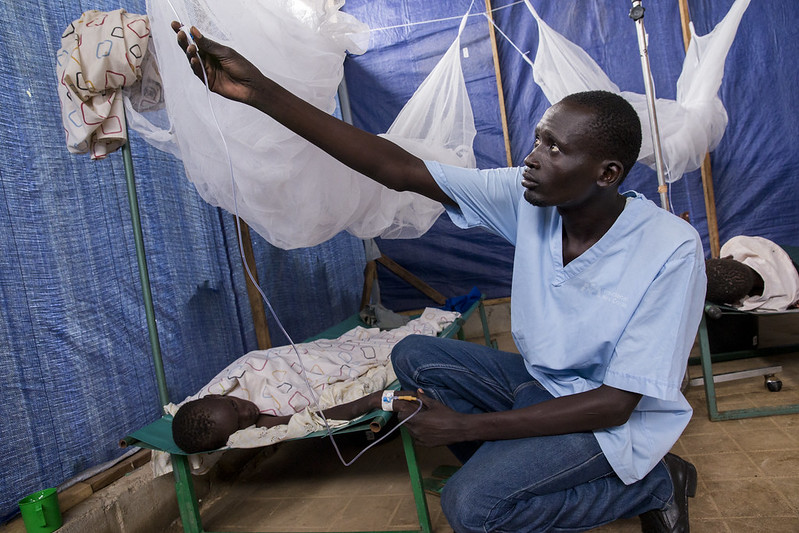
A new study in The Lancet Global Health highlights the potential impact that vaccines for diarrhea could have on antibiotic use in young children.
Using data from a previously published study that explored enteric infections and diarrheal illness in children in low- and middle-income countries, a team of US and Chinese researchers analyzed a cohort of children enrolled from 2009 through 2012 in Bangladesh, India, Nepal, Pakistan, and Tanzania who had antibiotic-treated diarrheal episodes in the first 2 years of life. They then used Monte Carlo simulations to estimate the hypothetical impact of nine vaccine scenarios (including six single-pathogen vaccines and three combination vaccines) on antibiotic-treated diarrhea, overall antibiotic courses, and antibiotic exposures to bystander pathogens.
Among 1,119 children, there were 3,029 (135.3 courses per 100 child-years) antibiotic-treated diarrhea episodes, of which 546 were caused by bacteria, 763 by viruses or parasites, and the rest were of unknown origin. Under the assumption of 100% vaccination coverage, the researchers estimated a Shigella vaccine would cause the greatest reductions compared with the other single-pathogen vaccines in antibiotic courses for all-cause diarrhea (a 6.1% relative reduction; –8.2 courses per 100 child-years), antibiotic courses overall (1.0% relative reduction; –8.2 courses per 100 child-years), and antibiotic exposures to bystander pathogens (1.2% relative reduction; –15.9 courses per 100 child-years). An adenovirus-norovirus-rotavirus vaccine would cause the greatest reductions in antibiotic use (12.2 courses per 100 child-years) compared with the other combination vaccines.
Ancillary benefits
The percentage reduction in antibiotic courses for diarrhea of any cause ranged from 2.0% to 9.7% across sites for the Shigella vaccine, and from 3.0% to 15.9% across sites for the adenovirus-norovirus-rotavirus vaccine.
The study authors say that given the high burden of diarrhea in low-resource settings, antibiotic overuse in young children is likely contributing to antimicrobial resistance.
"Children in low-resource settings are frequently treated with antibiotics for diarrhoea and vaccines for diarrhoea could have the ancillary benefit of preventing antibiotic use with implications for antimicrobial resistance," they wrote. "Prioritisation of development of vaccines for diarrhoea should consider potential impacts on antibiotic use, and combination vaccines would best achieve goals for limiting antibiotic resistance."



















